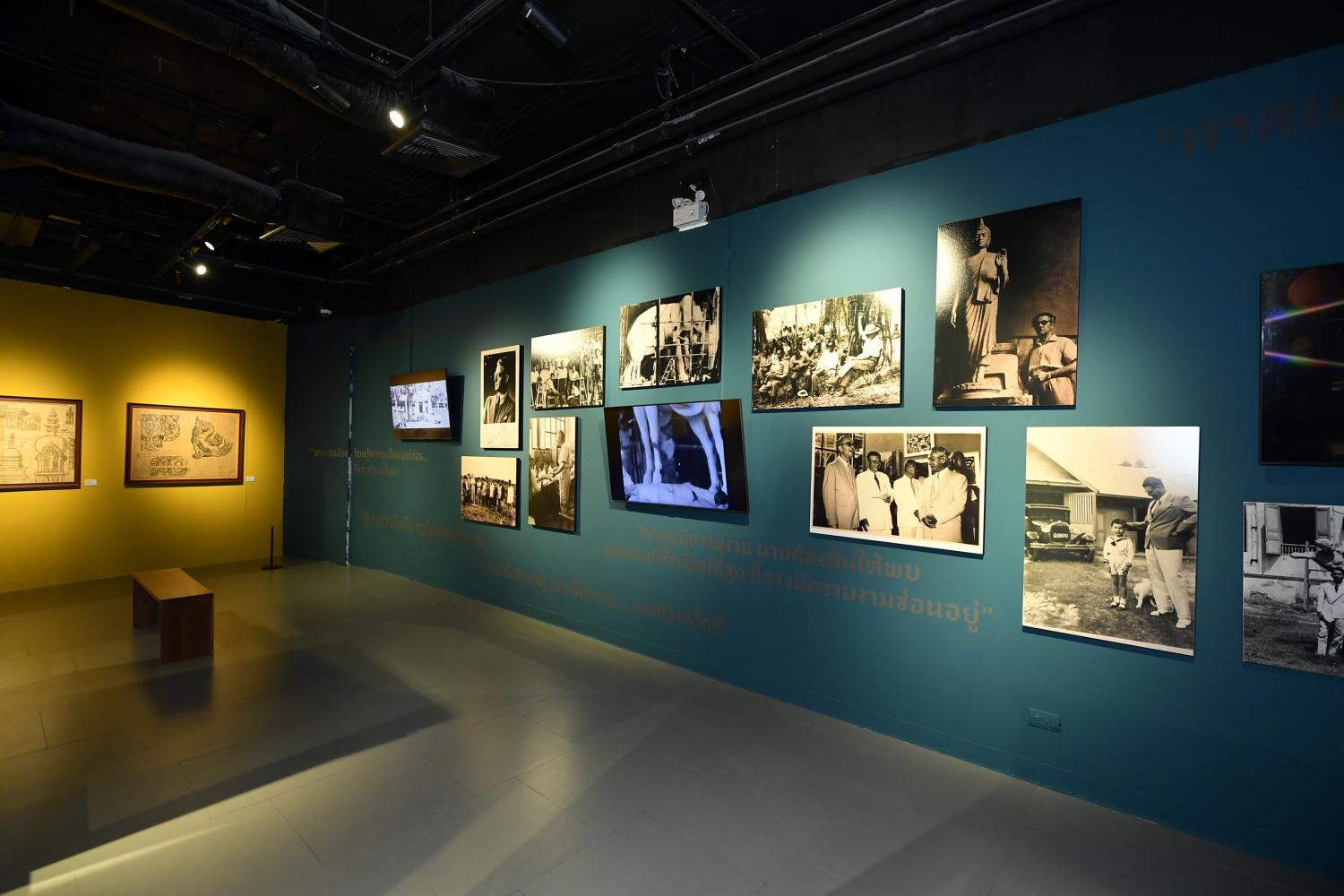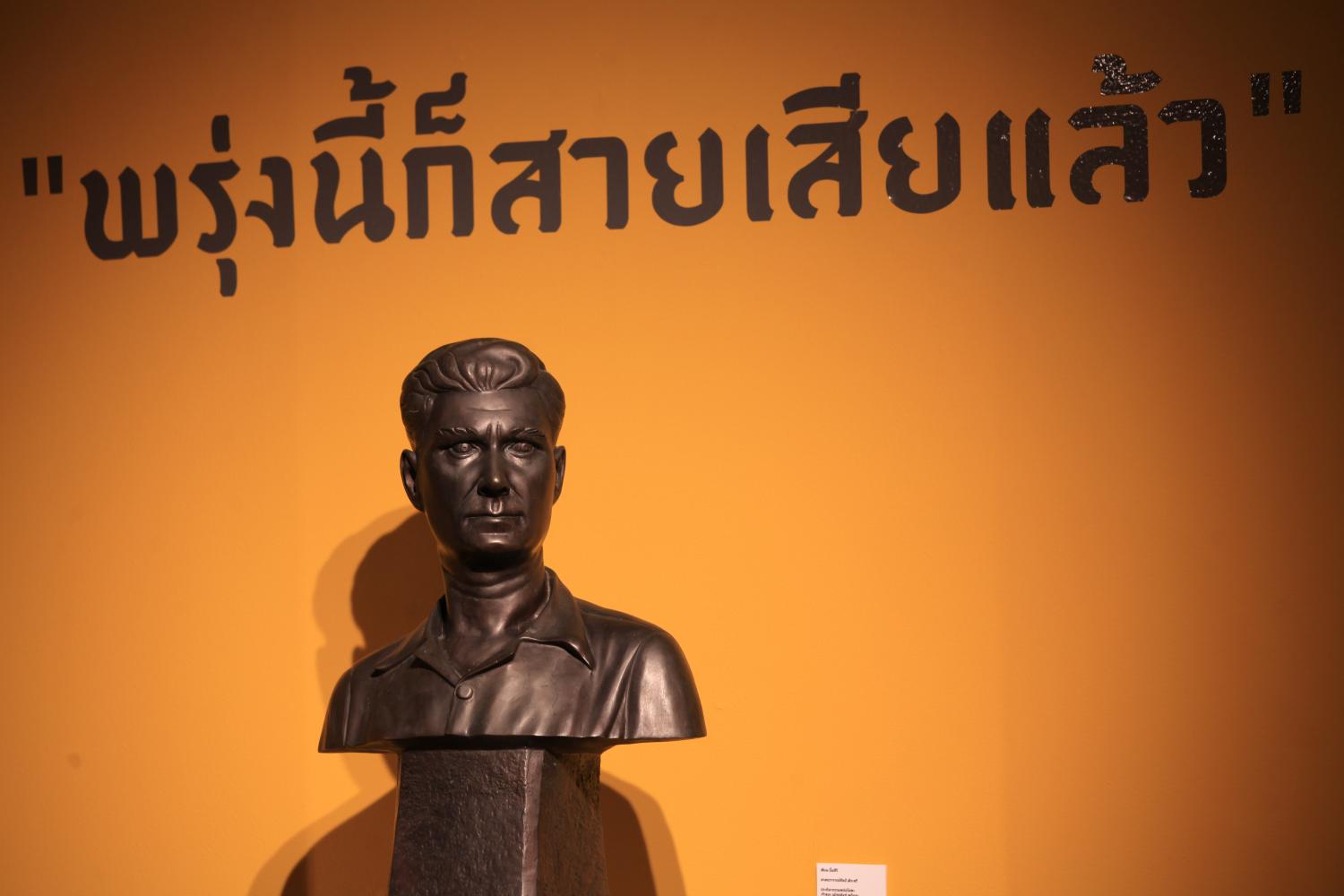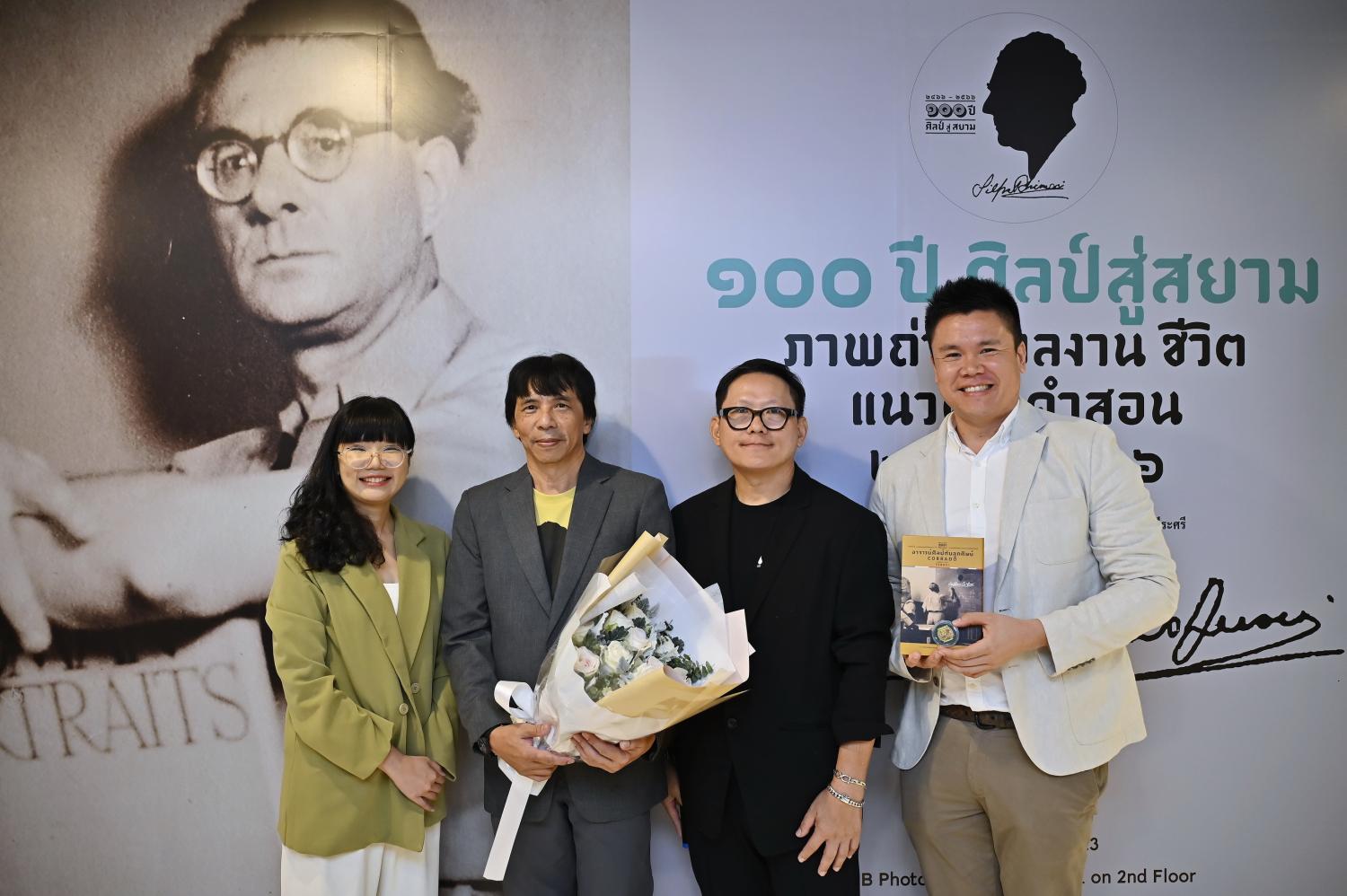Corrado Feroci, an accomplished sculptor and painter, was nominated by the Italian government to fill a teaching position in the Siamese civil service upon the Kingdom's request. Feroci, who graduated from the Royal Art Academy of Florence, arrived in Siam on Jan 14, 1923, and later adopted the Thai name Silpa Bhirasri.
In 1934, Prof Silpa, the father of Thai contemporary art, set up the School of Fine Arts which later became Silpakorn University. In the early years, there were four faculties -- the Faculty of Painting, Sculpture and Graphic Arts; Faculty of Thai Architecture; Faculty of Archaeology; and Faculty of Decorative Arts.
In commemoration of the 100th anniversary of Prof Silpa's arrival in Siam, the Silpa Bhirasri Research Center in partnership with a range of arts and cultural groups organised the exhibition "Remembering Silpa Bhirasri: 100 Years After His Arrival In Thailand", to pay homage to his priceless contribution to the country. At the exhibition, visitors can view Prof Silpa's artefacts such as photographs from different periods of his career, prototypes of his sculptural works, his original government contract, course syllabi and other historical documents.
Wijit Apichatkriengkrai, director of the Silpa Bhirasri Research Center, initially planned to mark the 100th anniversary of Prof Silpa's arrival on Siamese shores by launching the 4th edition of the book Prof Silpa And His Students. This edition features additional pages with information from interviews with Prof Silpa's students and new articles. When Wijit told others in the art industry about his idea, Piriya Vachajitpan, founder of the Art Auction Center, and Suchai Pornsirikul, director of the Chavalit Soemprungsuk Art Fund, suggested that an exhibition should be organised to make the book launch more exciting.

The exhibition features less text and more artefacts. River City Bangkok
"After speaking with Wijit, we discovered that Silpa Bhirasri Research Center owns many artefacts belonging to Prof Silpa that the public has never seen. Exhibiting these artefacts may generate more interest in the 100th anniversary of Prof Silpa's arrival in the Kingdom," Piriya explained.
"Silpakorn University's curriculum today was developed based on those created by Prof Silpa and the Royal Art Academy of Florence in Italy where he graduated. The curriculums were intense and strict. From 30 to 40 students, only seven to eight were able to graduate. Every Prof Silpa student who later became national artists were well accomplished. I feel like Prof Silpa is still here influencing Thailand's art industry," Wijit added.
Since Prof Silpa played a major role in establishing Silpakorn University, most students know who he is. In order to make him known to a wider audience, "Remembering Silpa Bhirasri: 100 Years After His Arrival In Thailand" is on display at River City Bangkok.
"I did not graduate from Silpakorn University, but I consider Prof Silpa as a public figure or a Thai hero. People not connected to Silpakorn University also want to pay homage to him because his contribution is not limited to only Silpakorn University. The art industry is not about following trends, but it has history and roots from ancestors which we want people to know of," said Piriya.
"Remembering Silpa Bhirasri: 100 Years After His Arrival In Thailand" focuses on displaying artefacts to depict Prof Silpa's ideas and thoughts as well as his biography.

'Tomorrow is too late,' one of Prof Silpa Bhirasri's famous quotes.
"The exhibition features less text and more objects. There are video interviews of Prof Silpa's students who are veteran artists which viewers may enjoy watching. In the middle of the room, there are two home movies owned by the Film Archive. The first home movie depicts Prof Silpa working at the Don Chedi Monument. The other movie was filmed in 1959 when Prof Silpa was surveying the Khu Bua Ancient Town in Ratchaburi. It was during the period when the Khu Bua Ancient Town was discovered," said Wijit.
Unseen artefacts include medals designed by Prof Silpa, anatomy sketches, textbooks and illustrations that were used in his teachings.
"Most people do not know that Prof Silpa designed many beautiful medals. This exhibition showcases the models which were his design for European clients. The medals show more of his aesthetic designs than his monuments because he had to follow government guidelines when creating the monuments. However, for the medals, he could add more of his own artistic ideas," said Wijit.
"The first edition of the text book Theory Of Composition, authored by Prof Silpa, is displayed at the exhibition. This title of the book used different spellings from the present because it was the spelling that was used while Field Marshal Plaek Pibulsongkram was the prime minister. I was surprised to see this book because as an art student, I studied the theory of composition, but had never seen this original edition before. Next to Theory Of Composition in the display cabinet, there is also an old worn-out history book which Prof Silpa used as his handbook to teach students," said Wijit.
Prof Silpa was in charge of designing and creating many of the best-known monuments in Thailand such as the King Rama I Monument, Thao Suranari Monument and the Monument of King Taksin the Great. Because of his remarkable work, Wijit said that Prof Silpa is proclaimed a national hero.

Sketches used in Prof Silpa's teachings.
"These monuments became landmarks in the areas. They bring business, harmony and value to the community. Prof Silpa's work is valued as public art. Although the monuments were not meant to be worshipped, people tend to do so and this brings business to the community, especially Thao Suranari Monument. I believe Thao Suranari Monument brings in an income of over a billion baht from people who come to worship the monument."
Although Prof Silpa is Italian, he appreciated Thai art and culture, so he supported Fua Haripitak, his student and national artist, to preserve Thai traditional art.
"Prof Silpa wrote that his first impression of Thailand was a country rich with temples, pagodas and Thai art. One of his famous quotes 'Tomorrow is too late' refers to the deterioration of Thai traditional art. If we do not preserve Thailand's traditional paintings, sculptures and historical sites now, it will be too late. When Fua showed his interest in preserving Thai traditional art by duplicating traditional paintings in old temples, Prof Silpa supported Fua and tried to find a financial budget to assist him," said Piriya.
The event organisers hope that general public will visit the exhibition to learn more about Prof Silpa.
"New generations who study art may know that Prof Silpa established Silpakorn University and created sculptures and monuments, but I hope that they will also realise that Prof Silpa contributed tremendously to Thai modern art and the contemporary art industry. His students expanded knowledge of art by establishing institutions in other provinces. Prof Silpa did not teach only academic knowledge but he encouraged students to have faith in art. Art was like a religion to him and his students. Therefore, they dedicated themselves to art throughout their lives," said Suchai.

The 4th edition of Prof Silpa And His Students. River City Bangkok
"Prof Silpa was a big bang for Thailand's modern art. He was an excellent teacher because he specialised in sculpting, but he could also teach students to excel in other fields. Although he has passed away, people feel that he is still alive. Dead people are usually forgotten. If you want to leave a legacy, you must do good deeds like Prof Silpa," said Piriya.
"Remembering Silpa Bhirasri: 100 Years After His Arrival In Thailand" runs at RCB Photographers' Gallery 1, 2nd floor of River City Bangkok, until Feb 12. Admission is free. Visit rivercitybangkok.com. To purchase the book Prof Silpa And His Students, visit shorturl.at/cfGQY.

Medals designed by Prof Silpa Bhirasri. River City Bangkok

The first edition of Theory Of Composition by Prof Silpa Bhirasri. Photo: Apichart Jinakul

